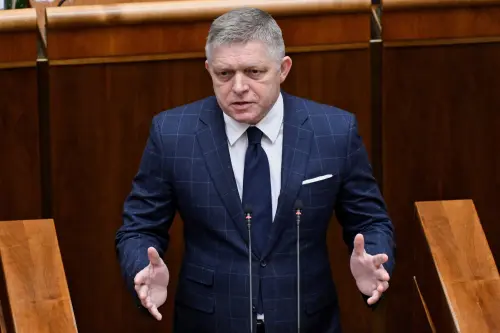Slovak Prime Minister Robert Fico solidified his grip on parliament by winning back several rebel lawmakers, restoring his government’s majority after recent disputes had caused instability.
Earlier this year, bickering within the three-party leftist-nationalist coalition left the government in a temporary minority in the 150-seat parliament. Fico had previously regained some support from defectors, achieving a fragile majority last month.
On Wednesday, Slovakia's president was set to appoint an independent lawmaker as minister for investment and development, a move facilitated by Fico that would increase the coalition's seats in parliament to 79, matching the total obtained by the ruling parties in the 2023 election.
"I believe I can confirm that at the next parliamentary session, which will begin next week, 79 should be restored, meaning the government coalition will be able to make decisions and hold important votes," Fico stated after a government meeting.
The coalition's internal strife has coincided with widespread public protests against a shift in Slovakia's foreign policy, which critics argue aligns the country too closely with Russia. Fico has opposed military aid to Ukraine, asserting it could prolong the war with Russia, and has clashed with Ukrainian President Volodymyr Zelenskiy over the discontinuation of Russian gas supplies via Ukraine.
Protesters have called for Fico's resignation, while he has defended his policy as a means of balancing Slovakia's interests while maintaining ties with the European Union and NATO. He has accused activists and the liberal, pro-Western opposition of attempting to incite unrest and disrupt the government, a claim they deny.
